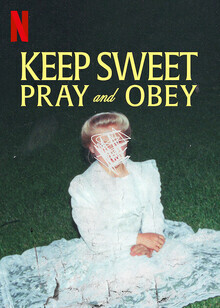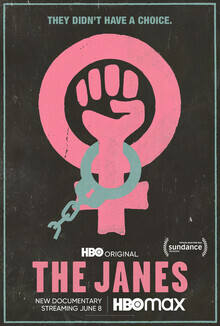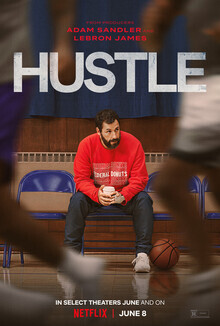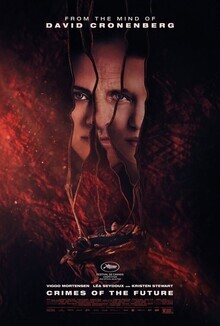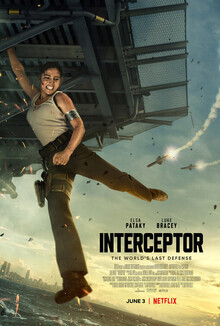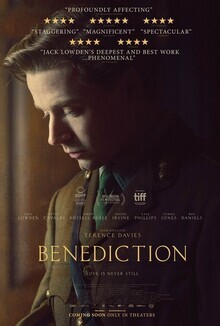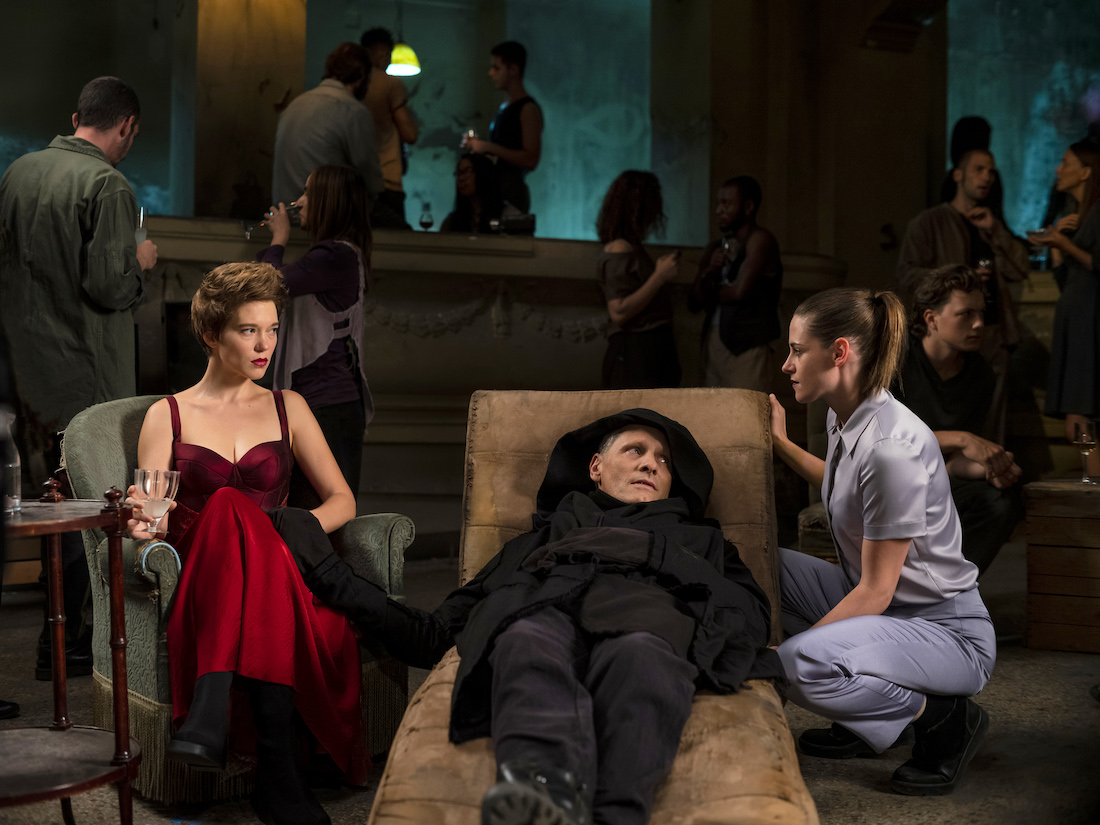
Canadian auteur David Cronenberg returned to the Cannes Film Festival for the sixth time this year, proving again the lasting legacy of the “new flesh” promised in his iconic thriller “Videodrome.” His latest, “Crimes of the Future,” is another in a long line of discomfiting works that challenge conventions of human connectivity. From the Jury prize-winning, “daring and audacious” film “Crash” in 1996, through 2002’s “Spider,” 2005’s “A History of Violence,” 2012’s “Cosmopolis,” and 2014’s “Maps to the Stars," he has long found ways of bridging the aesthetic and philosophical depths of European art cinema with the more brash, visceral genre elements developed on his side of the Atlantic.
“Crimes of the Future” once again reunites the writer/director with Viggo Mortensen, an actor highly attuned to Cronenberg’s methods. The ensemble cast includes Kristen Stewart, Scott Speedman, Don McKellar, and Léa Seydoux, an actress who has shared in a Palme d’Or and regularly appears in several films each festival. Her chemistry with Mortensen is one of the key narrative components of the film, and the two of them provide an exceptional foundation for the work as a whole.
Following the film’s premiere at Cannes, which saw both walkouts and long, earnest ovations, I had the chance to speak exclusively with both Cronenberg and Mortensen, and a day later joined in a small roundtable discussion with Seydoux. We spoke about their feelings about the festival, their reaction to the work, and what got them interested in cinema in the first place.
The following has been edited for clarity and concision.
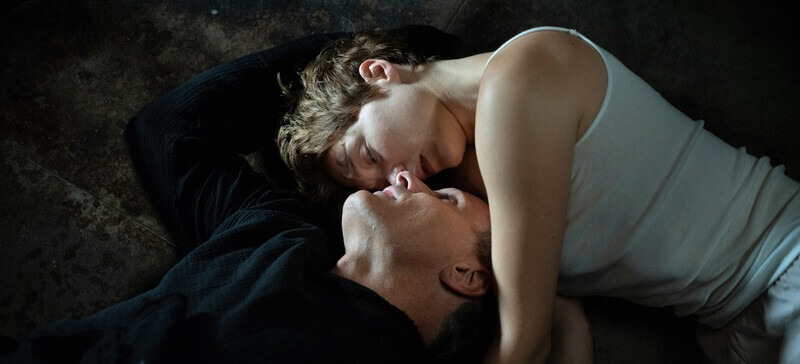
David Cronenberg
What does Cannes mean to you?
It means I get to stay in Paris three weeks first! That was really good. I was doing interviews there. The first time I came to Cannes it was after Paris, so it's a nice connection. It means you have a new film to release into the world and it will get the best possible exposure and compassion here. That’s true even with “Crash.” Even though there was a big controversy about it, for a low-budget, independent film, which most of my films are, this is the best place to introduce your film to the world.
Can you talk about competition and the arts? I know some people find it entirely distasteful. Are you somebody that watches the Oscars and has a party and everyone scores who wins?
No I don't, although my youngest daughter absolutely did when she was like eight. She was totally into the Oscars and made a little polling booth in the closet and did all of that stuff. She loved it.
Do you vote, for example?
I only vote if I've seen all of the films. These days, for various reasons, I have not been able to see all of the films, therefore I haven't voted. But in certain years, when I can see them all I definitely do vote. I'm very happy to be a member of the Academy which came after “The Fly.” But because I don't live in L.A. I can't take full advantage of that.
Why didn’t you ever make the move to L.A.? Obviously, the lure was there. Yet for some reason, you stuck around Toronto.
Yeah, I didn't want to be American. I mean, I don't mean that to sound more negative or anti-American than it is. It's just I really like being Canadian. I really liked where Canada was sort of positioned halfway. In film terms, we’re halfway between Hollywood and European filmmaking. I think that's where my filmmaking is, in the interzone between those two.
So not a “Dead Zone?”
No, Interzone. Different thing.
So very much an “Alive Zone.”
Very much alive and full of creatures.
The best shorthand I have is that your last two films were “blue” and you went back to making a “red” film. It felt that way visually, stylistically, emotionally, and so on. First of all, am I just talking shit as a critic, or do you see something in that articulation?
Well, of course you are talking shit because you are a critic! But at the same time, you are accidentally saying something true. [laughs] That sometimes happens.
But, yes, I think that's accurate enough. I think it's a nice metaphor. It's not conscious on my part though, I have to say. It's only in retrospect that you can see what people call the arc of a career or something. It's so difficult to get a film made. When people ask, "Why did you make 'Dead Ringers' when you did?" I say it’s because finally after 10 f**king years I got the money! Yes, it would have been quite a different film if I had made it when I first was interested in making it. So all talk of your choice of when you make a movie is laughable if you're a filmmaker because you make the ones that you're able to get to happen and it's always difficult.
The script for “Crimes of the Future” was born sometime between between “eXistenZ” and “Crash,” correct?
I wrote it in 1998.
So just before “eXistenZ” came out.
If that's when it came out.
It came out in April 1999, and you came out against “The Matrix” which released in March, I hate to remind you.
Yes, something around there.
With absolute respect I’m going to suggest this film is very much more akin to films of that era. Visually, this film is dramatically different than your last two films, which used a very cold palate. Here I believe that you are once again shooting with a sense of of redness, a sense of almost a lusty camera in a way that your last two were noticeably icy.
Yeah.
So while you may not want to admit the flows of your career arc, you’ve clearly made this an artistic decision.
Yeah, but it's based on what the project is. I've said it before, but I haven't said it for a while, so I'll say it again: You give the film what it needs. Each film needs different things. You're a fool if you're working outside that construct because all the audience is going to see is that film. I often had to tell myself as a young filmmaker all that counts is the rectangle. It’s the rectangle of film, that image. What happens outside that, on the set, your arguments with this one, that one, your disappointments with that, the lost location there, all totally irrelevant. Filmmakers must entirely concentrate on what you're getting in that rectangle of film. It's the same with the film overall. You focus on the project. You give it what it needs. If it needs red, you give it red.
Where do you find the most focus—Writing? Directing? Editing?
Each one requires total focus. The difference is that in directing, you've got a lot of people swarming around you. Writing, it's just you. Of course, you're talking to producers and maybe then actors when you give them the script, but basically, you're alone. So it's interesting phases. Truffaut wrote about this a lot. But I mean, you write, you're alone, you are in pre-production, you're with some trusted production people trying to find a way to make it happen physically. Then you're in the maelstrom of shooting, which is crazy time, you've got actors moving in and out, you've got locations that disappear, you've got weather, you've got 150 people that you're working with. Then, suddenly, that all goes away, and you're back to you plus an editor again. And it's almost like writing but not quite, but almost. It's almost like that's when you do your second draft, or third or fourth.
So it's the four seasons. And each one has a different zeitgeist built in. But in each case, it's a fierce focus that's required because there are always distractions, including when you're writing alone and you keep getting text messages from critics!
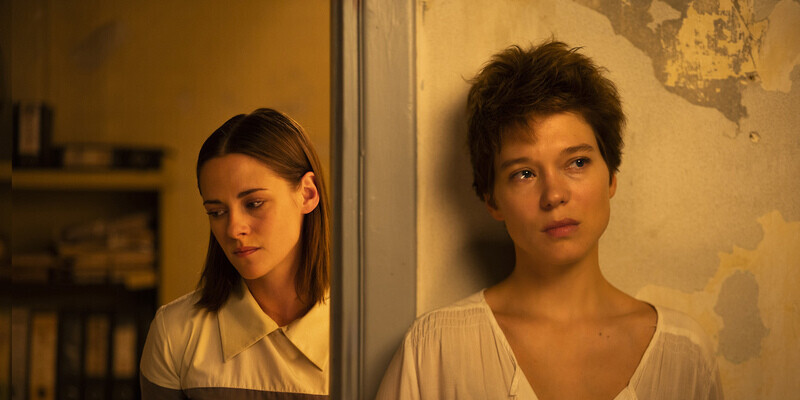
Léa Seydoux
What does the word “Cronenberg” mean to you?
For me, he's an icon. When they called me and they told me that potentially there was a part in his next film for me, I was just in the line at that very moment to see a new restoration of “Crash.” I discovered his films quite late, actually. They were not the films that I was watching when I was little, but it's really something. As a cinephile, when I became interested in film, I watched his work more and more.
Was that the first time you saw “Crash”?
Yeah, it was the first time. The thing is, I hate to watch films on my computer or on a little screen. I love to go to a theatre. So I was very happy that I discovered this movie in a theatre.
What did you think? Were you shocked or were you laughing? Both?
If you don't know his work, it's a shock. It's once you know his work that you can really dive into it. And it's the kind of movies where you are like ahhhh, and every time you see it, it opens new windows and new thoughts.
How's working with Cronenberg compared to other directors?
[When] I was on set there was a lot of freedom. He's the kind of director who just gives you freedom because he's a spectator of his own films. When I ask him how he feels about this, he said, "Oh, I have the dream that I'm watching someone else in the film." It's exactly that. He wrote something and then he gives you the line and you can have your own interpretation. You can tell he's watching you acting, doing your thing. I like that too. That freedom can be scary, but at the same time, I think that's what he wants.
What made you want to play this character?
There was something about this relationship that I was drawn to. I could see that she had, there were paradoxes or contradictions, I could see that, I thought the role was juicy with meaning.
What is the main meaning that you take from the film? What is it about for you?
I want to see it again! Every time I see it I'm like, "Ah, yes, so many layers." That's should be David's nickname, “Soul Dancer.”
With a film like this, or in a Bond film or a French drama, do you get the same things, the same experiences, the same feelings from acting in those different films?
Oh no. It's different because the director is different, the subject is different, but it's always interesting, even if it's hard. I had moments where I was really struggling, even me like, in parts where, "Oh, I know this part, it's fine, I know what I have to do," and sometimes I was like, "How the f**k am I going to do this?" And I'm very scared. So I always have this fear because I always feel that every film I do is my first film. I'm always scared, and at the same time, I think I'm addicted to that feeling.
You still have a bad night before the first day of shooting every time?
It's not a bad night, no. It's never really quite the same thing. Like with David, it was an unknown territory. When I read the script I was trying to figure out what it was about. And then, one fine morning, it was more clear, and I could relate to it because it was more realistic.
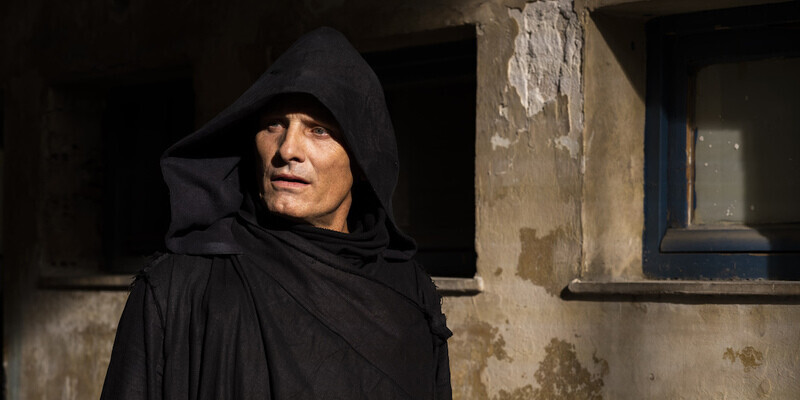
Viggo Mortensen
Was there a specific Cronenberg film that made you respond to it? Or was it when you started working together, was that not cinema that you were seeking out for pleasure before you started working with him?
I'd seen his earlier his first movies and I liked them. I thought they were really interesting. Right when I was starting out as an actor I remember seeing “Dead Zone” and really thinking that was a really well made movie. I hadn't met him yet, but I had been watching his movies. When “eXistenZ” came out, I was really impressed by that, because I realized this was made for relatively low budget. When I saw “The Matrix,” I immediately said, "Wow, 'eXistenZ is 'The Matrix' for adults," essentially. I don't mean any disrespect to anybody, but there's more underneath what's happening in “eXistenZ” than there is the whole of “The Matrix” for me. It's just my taste. It's a really good movie that was not entirely overlooked, but it didn't really have that much repercussion and I think it was quickly followed by “The Matrix,” which had the same concept.
It was released within a month prior. I was doing a master’s degree in Philosophy at the time and I was the asshole that said that in my review, “’eXistenZ’ is ‘The Matrix’ for adults.” [laughs]
You said that? Oh good! Anyway, those movies were impressive.
I met David briefly in Cannes when we were here presenting “Lord of the Rings,” in Spring 2004 or something like that. I then met him and he was in L.A. for a role. My agent said, "Do you want to meet David Cronenberg?" I said I'd love to meet him but I don't like that script to be honest, feels like an exploitation script to me, nothing against the screenwriter, but it was an adaptation of a pulp novel. I mean, he's a great director, and I don't want to say that I don't like the material, and he said "Oh, just meet him, and you might get along." We get along and we make some jokes. The Iraq invasion had just happened the year before, and it was that kind of political period. I said I thought that the script for “History of Violence” wasn't that great. It was too long, and it seemed very much an exploitation story. It didn't seem up to the level of his movies, He said, "Don't worry about it, I'm going to change that." He took a base script that was 120 pages and the shooting script was between 75 and 80 pages. He just made it very specific using the best of that story, and it really worked, you know? But he was very honest and very funny in our first meeting and it's been that way ever since.
What does this festival mean to you? I know you're always here with a film. Is this the kind of environment you would actually go to as a film fan?
I mean, even if I wasn't in David's movie, if I had a chance and I was in the area, I would have gone to see the movie last night if I could have because it's him. I remember I was here the last time in 2014 with “Captain Fantastic” and he was here with “Maps to the Stars,” and I did go see him that night. It was nice to see him. But no, generally speaking, it's not, I've driven through here in the dead of winter, it's very nice, very quiet.
But not even just Cannes, just the whole notion, is a film festival an environment for you? Are you a much more insular filmgoer, or are you somebody who simply makes films and doesn't spend a lot of time watching them?
Well I love going to movies in the movie theatre. I love going to movie houses alone. I enjoy that experience, or with people, but I really like going by myself. I do like film festivals, especially ones like this because yes, there are extreme and sort of grotesque or gauche kind of displays of exhibitionism and strange displays of wealth and all of that stuff that's part of the thing. But there is a real love of movies. The people that struggle to go see a movie beyond just movie fans of certain movie stars or whatever, are really wanting to see something innovative, to be challenged, not just entertained. There's a generally a very literate cinephile audience for the best of what's shown here, and I like those environments.
I like film festivals also where there's more Q&A sessions or what do you call it, not master classes, but where there's dialogue with filmmakers and it's interesting, you learn things. But, yeah, generally speaking, a film festival like this, the movie's going to be seen at its best, sound, image, there's a lot of care taken to show the very best version of the movie, probably the very best you'll ever see.
I guess the worst is that it's being seen within the context of a competition.
Yeah, I mean, comparisons are odious, competitions are kind of silly, and I mean, David's been here many times. He did a Jury Prize much against the president of the jury when "Crash" was here. Coppola didn't even want to talk about it.
I was at that screening!
Yeah, and I guess he famously burned the card and all of that stuff and he refused to give him the prize that the jury insisted on giving him it for audaciousness, a special jury prize that they invented for him because they didn't want to leave him to go away empty-handed and the fact that Coppola ... he's a great filmmaker, obviously, but that's a shameful moment, an inexplicable moment. Why you wouldn't give the award your jury wanted to give that film, it doesn't matter who it is, give it to him. Why do you refuse to present it? What was so threatening to Coppola, do you think, about “Crash"?
"Crimes of the Future" is now playing in theaters.
Jason Gorber is a film journalist and member of the Toronto Film Critics Association.
